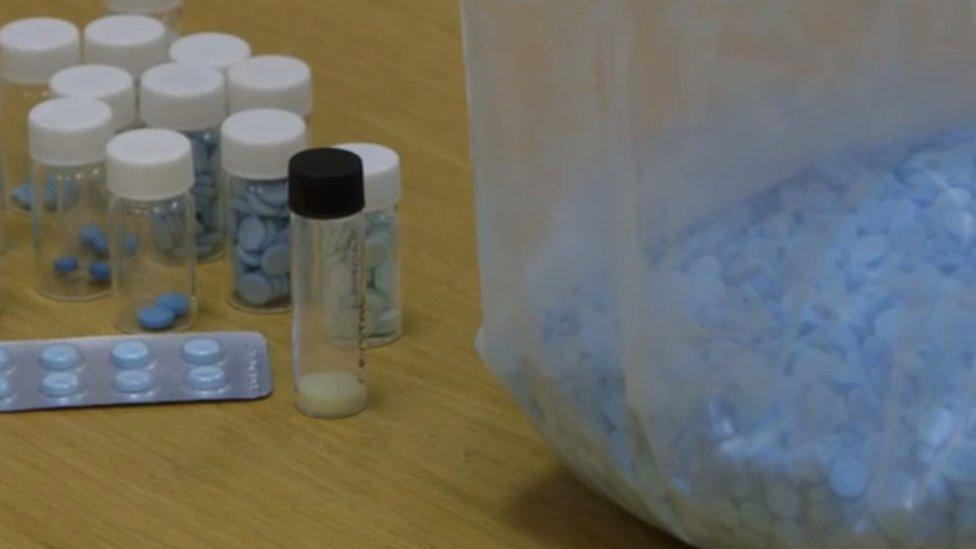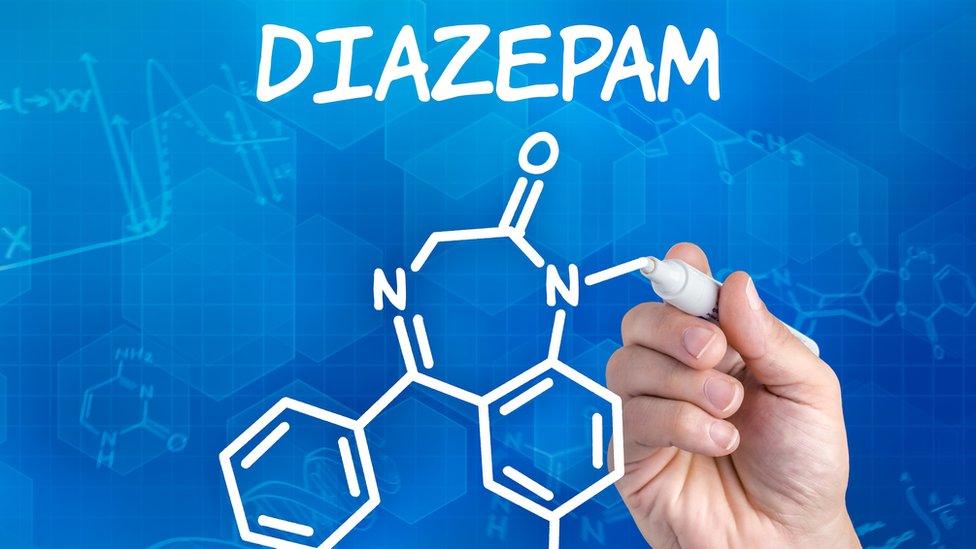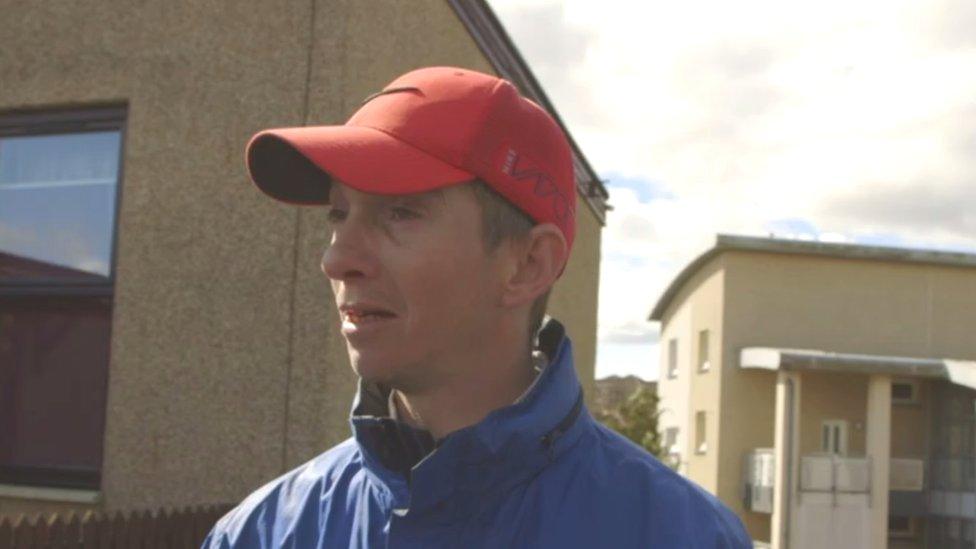Fake valium 'cheaper than chips', warns drug expert
- Published

Fake valium tablets are now so freely available across Scotland they have become "cheaper than chips", a drug expert has warned.
The tablets, bought on the street, have been linked to the deaths of six people in the Toryglen area of Glasgow in the past nine months.
In some cases the pills contained etizolam, as a substitute for diazepam.
Andrew Horne, from support group Addaction, said deaths occurred on a weekly basis in all parts of Scotland.
Mr Horne said the problem of fake valium was not a new one - but the huge quantity of such drugs circulating on the black market had led to rock bottom prices.
He told BBC Scotland's Good Morning Scotland programme: "It's absolutely everywhere.
"Addaction runs services from Oban to Eyemouth and you can be sure that you're seeing fake valium - valium is a bit of a misnomer.
"To say what is fake valium is as cheap as chips would be a misnomer in that it's cheaper than chips.
"It's selling for pennies across the country."
The fake valium pills are often coloured with blue food dye to make them look like the genuine valium pills, leaving users with blue lips.
Sold on the street, there is no regulation over what they contain. Substitute chemicals are often highly dangerous, especially if combined with other drugs.

'Mother's little helper'

Valium is the name under which the drug diazepam was first marketed when it was introduced in 1963.
The drug, a stronger version of its predecessor librium, usually has a calming effect on users and is used to treat anxiety.
Diazepam rapidly became the top-selling pharmaceutical in the United States from 1969 to 1982, with peak sales in 1978 of 2.3 billion tablets, helping its maker Roche become one of the world's biggest drug companies.
The 1966 Rolling Stones hit "Mother's Little Helper" is believed to refer to diazepam use among housewives.
Initially welcomed as an alternative to barbiturates, concerns grew in the 1980s and 90s about the potential for dependence and abuse.
The patent ended in 1985 and there are now more than 500 brands available on the market. In most countries it is regulated as a prescription drug.
Etizolam mimics many of the effects of diazepam. It can be lethal if combined with opioids such as heroin or methadone.

Mr Horne said fake valium often bore no relation to the genuine tablets which are part of the benzodiazepine family of drugs.
"I know that in one of the residential units here in the city when they test people coming in for residential detox, saying they're using valium, there's no trace of benzodiazepams at all in their blood system," he said.
He said many of those who bought fake valium were also using other opioid drugs such as heroin and methodone, a potentially lethal combination.
He said: "It's a game of Russian roulette really. If you are going to take a tablet, you don't know what it is.
"If you are going to use, be very careful. Be very, very careful. 'Cut and try' is a phrase that you might want to use. Don't think just because you've got what looks like five blue valium, don't think for a second that they are five blue valium."
According to Scottish government figures diazepam-type substances led to 191 deaths in Scotland in 2015.
"We probably get a drug related death report every week from everywhere in Scotland," Mr Horne said.


In a recent BBC documentary Scotland's Valium Crisis drug addict "Jamie" described his dependence on valium-type tablets.
"It fills that emptiness," he said. "It feels like it's your own shield.
"You're wrapped in bubble wrap and things don't really matter as much."
"But then again, the problem's still there in the morning. If you're willing to just not address it.
"It certainly does help to calm the stresses of life."

Mr Horne said addressing the problem of fake valium was at one level a policing matter - but that a wider solution needed to focus on why people were buying the pills in the first place.
"There is a demand matter. Why are people wanting to use these? A lot of people that we see dying across the country are people who have hardened drug careers that have gone on for many years and therefore their health is already compromised," he said.
"It is about those people coming forward for help - and there is a lot of help out there.
"Addaction has services throughout the country and where we're not there, there are other really good professional people ready to offer help."